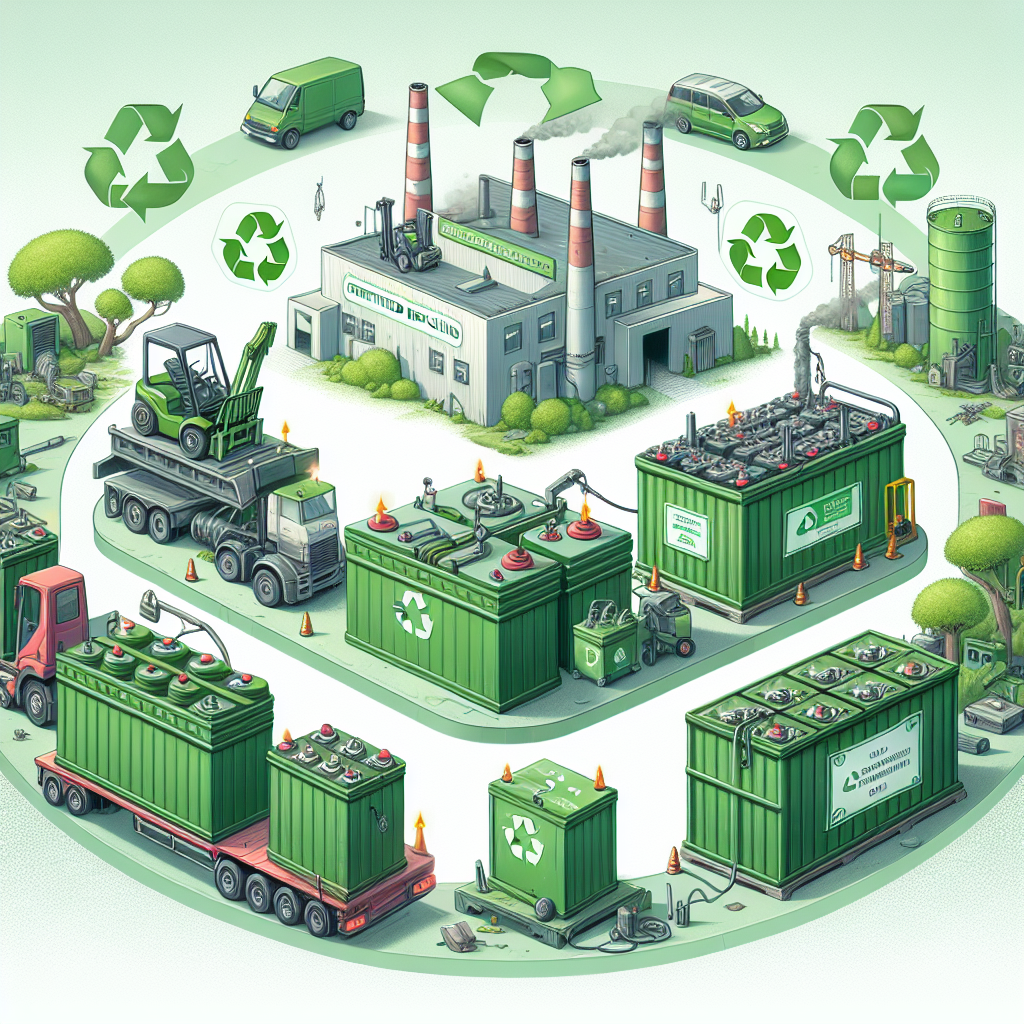Blog Ecobraz Eigre

The complete industrial battery cycle: from use to certified recycling
Industrial batteries are essential for the functioning of various sectors, from energy storage to the operation of electric vehicles. With their continuous use comes the need to understand their complete cycle, from application to certified recycling, ensuring sustainability and environmental safety.
Importance of industrial batteries
Industrial batteries play a vital role in large-scale energy storage, supporting operations in industries, telecommunications, transportation and renewable energy systems. They provide the energy needed for large equipment and ensure the continuous operation of critical processes.
Types and applications of industrial batteries
Different types of batteries are used in the industrial environment, such as lead-acid, lithium-ion, nickel-cadmium and nickel-metal hydride batteries. Each one has specific characteristics, suitable for different applications, from electric forklifts to power backup systems, directly influencing the performance and durability of the equipment.
Use and maintenance to extend service life
To maximize the efficiency and durability of industrial batteries, it is essential to carry out proper maintenance, which includes constant monitoring of the state of charge, avoiding deep discharges and controlling environmental conditions such as temperature and humidity. These practices help to extend the useful life of the equipment and reduce operating costs.
The end of useful life and the risks involved
After a certain period of use, batteries reach the end of their useful life and can present significant risks, such as chemical leaks, short circuits and even fires. Improper disposal can cause serious environmental damage, contaminating soil and groundwater, as well as causing problems for human health.
Certified recycling process
The certified recycling of industrial batteries is fundamental to mitigating environmental impacts and recovering valuable materials such as lead, lithium, cobalt and nickel. The process includes specialized collection, safe transport, controlled disassembly and processing in authorized facilities that meet strict environmental regulations, ensuring that waste is treated safely and efficiently.
Environmental and economic benefits of recycling
Recycling not only reduces the extraction of natural raw materials, preserving natural resources, but also reduces pollutant emissions and energy consumption in the production of new batteries. In addition, it promotes job creation and circular economies, contributing to the sustainable development of the industrial sector.
Important regulations and certifications
The proper handling of industrial batteries is regulated by various standards, such as ABNT NBR, CONAMA Resolution No. 401/2008 and other state and federal decrees that guarantee safety in transportation, storage and recycling. Specific certifications ensure environmental compliance and responsibility in the recycling chain.
Recommended practices for conscientious disposal
Adopting correct practices for the disposal of industrial batteries is essential to prevent contamination. This includes identifying authorized collection points, following guidelines for transport and temporary storage and ensuring that the material is sent to certified recycling centers, avoiding disposal in common areas or on land.
How technological innovation influences the battery cycle
Technological evolution has driven the development of batteries with greater capacity, extended life cycles and recycling facilities. New recycling methods and reuse technologies are being developed to make the battery cycle more efficient, sustainable and economically viable.
Conclusion
Understanding the complete cycle of industrial batteries, from their use to certified recycling, is crucial to ensuring sustainability, safety and energy efficiency in various economic sectors. The correct management and recycling of these batteries contributes to environmental preservation, resource saving and sustainable development.

Deixe um comentário
O seu endereço de e-mail não será publicado. Campos obrigatórios são marcados com *